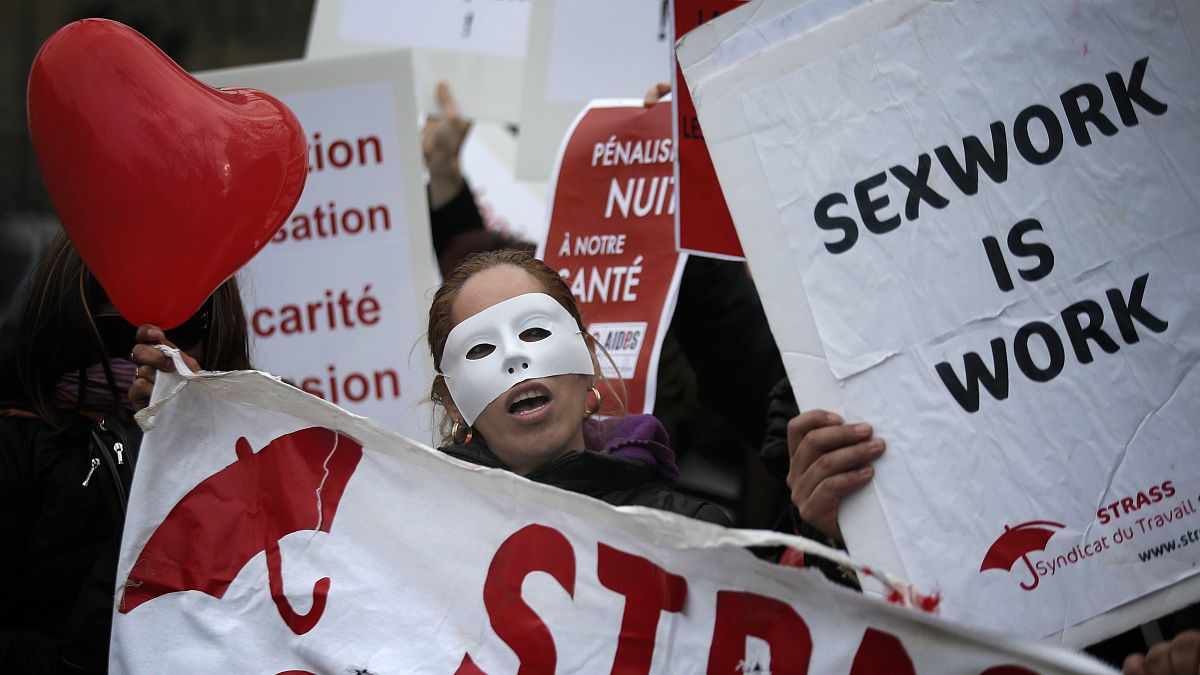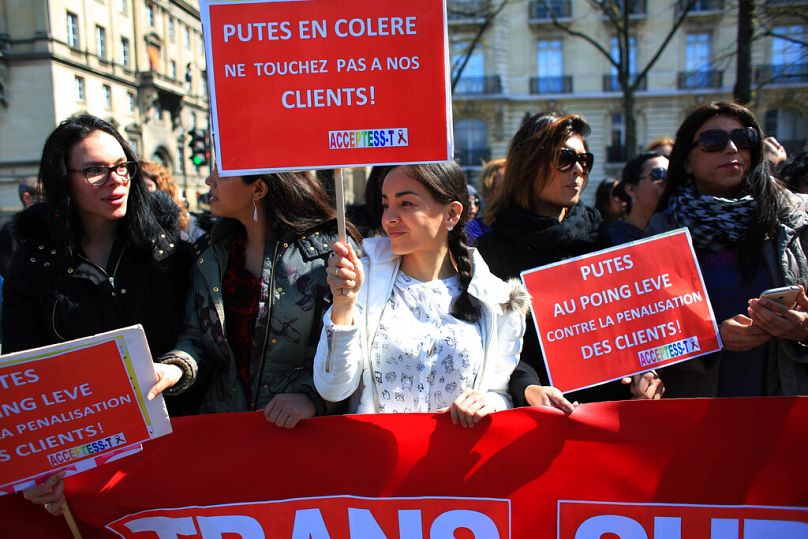According to rights group Amnesty International, Thursday's ECHR's ruling was a missed opportunity to better protect sex workers from abuse and violence.
The European Court of Human Rights (ECHR) ruled on Thursday that a French law criminalising clients of sex workers does not violate the Convention on Human Rights.
The ruling followed a petition from 261 sex workers challenging the 2016 French law, which fines sex buyers up to €1,500, with penalties increasing significantly for repeat offenders.
Opponents of prostitution hailed the decision on the rarely enforced regulation as a major victory.
However, the applicants, backed by about 20 associations, argued that the law forced sex workers into hiding, increasing their vulnerability to abuse, violence, and sexually transmitted infections.
The petition was filed with the ECHR in Strasbourg in 2019, after their case had been unsuccessful in French courts.
Under Article 8 of the EU Convention, the plaintiffs argued that the French law penalising sex buyers endangered their physical and mental health.
Regarding the health and safety of sex workers, the judges in Strasbourg stated that they were "fully aware of the undeniable difficulties and risks to which they are exposed while exercising their activity."
This, was "already present and observed before the adoption of the law” in 2016, “the same negative effects having in the past been attributed to the introduction of the offence of solicitation into French law,” the court said.
According to rights group Amnesty International, Thursday's ECHR's ruling was a missed opportunity to better protect sex workers from abuse and violence.
“This ruling fails to recognise that criminalising sex work increases discrimination and stigmatisation and jeopardises the safety of sex workers, who are among the most marginalised groups in our societies,” said Anna Błuś, Amnesty International’s Women’s Rights Researcher.
“Criminalisation also jeopardises their human rights as it creates obstacles for sex workers in accessing housing, healthcare, and other critical services and can lead to abuse, violence, harassment, and extortion,” she added.
With the Olympic Games and an influx of tourists approaching, French authorities are concerned about a potential rise in prostitution. Authorities, however, say measures have been taken to raise awareness.
Europe split on how to deal with sex work
The debate over how to approach sex work in Europe has raged on for decades, especially since the early 2000s, when the Netherlands began regulating prostitution.
In 2022, Belgium became the only country in Europe to decriminalise sex work, while the Netherlands, Germany, and Austria all have some form of legalised sex work.
By contrast, France and Sweden criminalise the buying of sex but not the selling, with the broad aim of “abolishing” sex work.
Several UN agencies, namely the World Health Organization (WHO) and the United Nations Population Fund (UNFPA), as well as human rights organisations such as Amnesty International and Human Rights Watch, oppose criminalising buying of sex.













